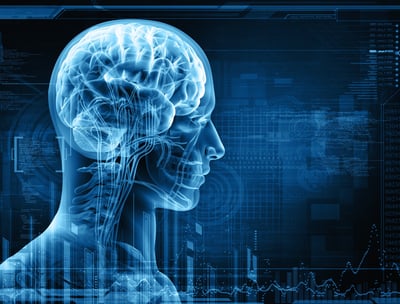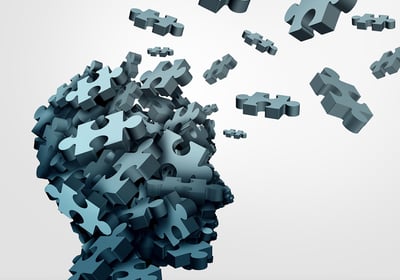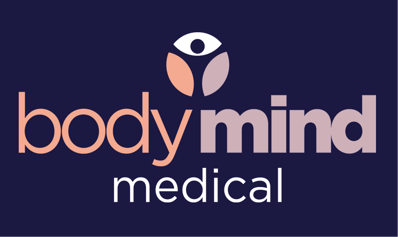

Eating Disorder Clinic
Cutting Edge Research
For Making Smart Decisions
Bulimia
Obesity
Anorexia
Food Addictions
About Eating Disorders
Eating disorders are serious mental health conditions characterised by unhealthy relationships with food and body image. They include anorexia nervosa, bulimia nervosa, binge eating disorder, and others. These disorders often stem from complex factors like genetics, emotional distress, societal pressures, and trauma. They can severely impact physical health, emotional well-being, and daily functioning. Recovery is possible with early intervention, professional support, and a compassionate approach that addresses both the psychological and physical aspects of the disorder.
Did You Know ?
5 - 10%


of the population exhibit signs of food addiction




Increased risk of mortality rate in bulimia patients
associated with anorexia - the highest of any psychiatric disorder
5x higher
10% mortality rate
Cutting Edge Research
Functional psychiatry offers a holistic approach to reversing eating disorders by addressing underlying causes such as nutrient imbalances, gut health, hormonal dysregulation, and emotional trauma. It integrates advanced diagnostics, nutritional therapy, lifestyle changes, and mind-body techniques to restore mental and physical health. Functional psychiatry recognises the complex interplay between brain chemistry, environment, and behaviour, providing personalised care that promotes sustainable recovery. This approach empowers individuals to heal deeply and achieve long-term well-being and resilience.
Functional Psychiatry
For Reversing Eating Disorders
What Are Eating Disorders ?
Contrary to popular belief, eating disorders are not a lifestyle choice nor are they a sign of a personal weakness or character flaw. Eating disorders, such as anorexia and bulimia, are potentially life-threatening mental health disorders that are rooted in brain dysfunction. When left untreated, these conditions can have devastating consequences on physical health and can further impair brain health.
Research shows that eating disorders are associated with an elevated mortality risk and a higher risk of suicide. Because of this, it is critically important to seek help for eating disorders so you can lead a healthier life. (See more about the various types of eating disorders, their symptoms, and their consequences below.)
Who Suffers From Eating Disorders ?
At least 30 million Americans struggle with an eating disorder. Eating disorders are more prevalent in women, and they often begin during adolescence or young adulthood. However, men can suffer from eating disorders too. In fact, it is estimated that 1 in 3 people with an eating disorder is male, but they are much less likely to seek treatment. In addition, athletes who compete in sports where there is an emphasis on body type, weight, or appearance are at risk for eating disorders.
Co Occuring Conditions
It is very common for people with eating disorders to have co-existing mental health conditions. In fact, one study of over 2,400 people with an eating disorder found that 97% of them had at least one co-existing psychiatric problem. Mental health conditions commonly seen in people with eating disorders include:
Anxiety
Depression
Substance Abuse
Post-Traumatic Stress Disorder
Obsessive Compulsive Disorder
Suicidal Thoughts and Attempts
Types Of Eating Disorders
Provide a general summary of the services you provide, highlighting key features and benefits for potential clients.




Bulimia
Obesity
Obesity can result from an eating disorder like binge eating, characterised by compulsive overeating and loss of control. Emotional stress, hormonal imbalances, and poor dietary patterns often exacerbate the condition.
Bulimia is an eating disorder marked by cycles of binge eating and purging through vomiting, laxatives, or over-exercise. It often stems from emotional stress, body image issues, or underlying mental health conditions.




Food Addictions
Anorexia
Anorexia is an eating disorder characterised by extreme food restriction, intense fear of weight gain, and distorted body image. It often leads to severe malnutrition, emotional distress, and serious physical health complications.
Food addiction is an eating disorder involving compulsive overeating driven by cravings for highly palatable, processed foods. It’s linked to dopamine imbalances, emotional stress, and loss of control over eating habits.
The Discovery Consultation
The discovery consultation is a three-part process analysing life stress, symptoms, and advanced lab tests to uncover root causes, providing personalised insights for effective treatment and lasting health improvements.
Symptoms Analysis
Functional medicine symptoms analysis for eating disorders evaluates behaviours like binge eating, food restriction, purging, and emotional triggers. It explores underlying factors such as stress, hormonal imbalances, and gut-brain axis dysfunction, providing personalised insights for tailored interventions to restore healthy eating patterns and emotional wellbeing.


Lifestyle Analysis
Functional medicine laboratory studies for eating disorders investigate biomarkers like hormonal imbalances, nutrient deficiencies, inflammation, and gut microbiota health. Comprehensive testing uncovers root causes affecting appetite, metabolism, and mental health, enabling personalised interventions to support recovery, emotional balance, and long-term physical and mental wellbeing.
Laboratory Analysis




A functional medicine lifestyle analysis for eating disorders examines diet, sleep, stress, physical activity, and emotional health. This holistic approach identifies contributing factors like poor nutrition, chronic stress, or negative habits, enabling personalised strategies to support recovery, restore balance, and improve long-term mental and physical health.
What Is Neuroplasticity ?
Neuroplasticity refers to the brain's ability to reorganise itself by forming new neural connections throughout life. This adaptability enables the brain to compensate for injury, adapt to new experiences, and optimise function. In treating memory loss, neuroplasticity is foundational, as therapies focus on stimulating neural pathways, enhancing brain resilience, and restoring cognitive abilities. By addressing underlying factors like inflammation, stress, and lifestyle, treatments leverage neuroplasticity to improve memory, boost learning, and promote long-term brain health.
Get In Touch


Our Office
Inform visitors about your business location and working hours.
Address
Fernbank House, Springwood Way, Macclesfield SK10 2XA
Hours
9am - 6pm


